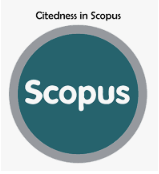Utilization of Digital Technology in Enhancing Teachers' Pedagogical Competence
DOI:
https://doi.org/10.56404/jels.v4i2.108Keywords:
Digital Technology, Pedagogical Competence, Teachers, Madrasah, LearningAbstract
This study aims to analyze the utilization of digital technology in enhancing teachers' pedagogical competence in madrasahs in Jombang Regency. The research employs a qualitative approach with a case study method. Data were collected through interviews, observations, and document analysis involving teachers, madrasah principals, and students. The findings indicate that digital technology has positively impacted teachers by enhancing their creativity and teaching effectiveness. The use of learning applications such as Google Classroom, Zoom, and Quizizz has helped teachers deliver lessons more interactively. Moreover, the integration of technology into learning has increased student engagement, particularly in discussions and group work. The study also reveals several challenges in implementing digital technology, such as limited infrastructure, lack of teacher training, and disparities in students' readiness. Some madrasahs still struggle with providing stable internet access and adequate learning devices. Additionally, resistance among some teachers due to limited digital skills and the time required to adjust teaching methods remains a challenge. To address these issues, strategies such as continuous teacher training, improvement of technological infrastructure, and the development of a more adaptive technology-based curriculum are necessary. By implementing these measures, the utilization of digital technology can be optimized to support the enhancement of teachers' pedagogical competence and the quality of learning in madrasahs in Jombang Regency.
References
Adiawaty, S. (2023). Adaptive Strategies For 21st Century Learning: Digital Literacy And Learning Outcomes In Contemporary Indonesian Higher Education. International Journal of Teaching and Learning, 1(2).
Al-adwan, A., & Smedley, J. (2012). Implementing e-learning in the Jordanian Higher Education System: Factors affecting impact. International Journal of Education and Development Using ICT, 8(1).
Anggraeny, D., Nurlaili, D. A., & Mufidah, R. A. (2020). Analisis Teknologi Pembelajaran dalam Pendidikan Sekolah Dasar. FONDATIA, 4(1), 150–157. https://doi.org/10.36088/fondatia.v4i1.467
Chaanpraserta, P., Thomas, J. L., & Mitchelle, S. (2024). Innovative Learning Strategies for Enhancing Student Engagement in Multicultural Classrooms. JTL: Journal of Teaching and Learning, 1(1), 57–72.
Chowdhry, S., Sieler, K., & Alwis, L. (2014). A Study of the Impact of Technology-Enhanced Learning on Student Academic Performance. Journal of Perspectives in Applied Academic Practice, 2(3).
Habibulloh, M., & Ridho, M. A. (2024). The Transformation of School Culture Based on Spiritual Values as an Effort to Improve Student Discipline. IJEMR: International Journal of Education Management and Religion, 1(1), 1–12.
Habibulloh, M., Sholeh, M. I., & Idawati, K. (2024). Exploring Technological Innovations and Approaches in Modern Education. SAHRI: Journal of Studies in Academic, Humanities, Research, and Innovation, 1(1), 49–66.
Johnson, E., Mendoza, C., & Sobirin, M. S. (2024). Strategies of School Principals in Improving Educational Quality: An Analysis of Best Practices in American Schools. JMPI: Jurnal Manajemen, Pendidikan, Dan Pemikiran Islam, 2(2).
Ma, X. Z., Ertmer, P. A., & Pelgrumen, C. P. (2024). The Impact of Technology Integration on Student Learning Outcomes. JTL: Journal of Teaching and Learning, 1(1), 73–90.
Miles, M. B., Huberman, A. M., & Saldaña, J. (2014). Qualitative Data Analysis: A Methods Sourcebook. Sage Publications.
Minarti, S., Ma’arif, M. J., Manshur, A., ‘Azah, N., Sholeh, M. I., & Sahri, S. (2024). The Influence Of Teacher Training And The Use Of Educational Technology On The Effectiveness Of Islamic Education Learning At Man 1 Bojonegoro. Educational Administration: Theory and Practice, 30(4), 64–75. https://doi.org/10.53555/kuey.v30i4.1404
Patton, M. Q. (2002). Qualitative Research & Evaluation Methods. Sage Publications.
Ristya Rini, D., Maulani W., A., & Tri W., R. (2023). 3D Animal Illustration Flashcard as a Learning Media Innovation in Early Childhood Education. KnE Social Sciences. https://doi.org/10.18502/kss.v8i15.13929
Sheffield, R., Blackley, S., & Moro, P. (2018). A professional learning model supporting teachers to integrate digital technologies. Issues in Educational Research, 28(2), 487–510.
Sholeh, M. I. (2023). Menghadapi Persaingan Sengit Lembaga Pendidikan: Strategi Diferensiasi dalam Pemasaran Lembaga Pendidikan Islam di Indonesia. 1(3).
Sholeh, M. I. (2024). OPTIMIZING THE USE OF LEARNING EQUIPMENT TO IMPROVE EDUCATION AT MAN 2 TULUNGAGUNG. EDUSIANA: Jurnal Manajemen Dan Pendidikan Islam, 11(1), 1–21.
Sholeh, M. I., Azah, N., Arifin, Z., Rosyidi, H., Sokip, S., Syafi’I, A., & Sahri, S. (2024). Development of a Multicultural Curriculum to Enhance Student Tolerance in Senior High School. IJE : Interdisciplinary Journal of Education, 2(3), 163–176. https://doi.org/10.61277/ije.v2i3.147
Shull, F., Singer, J., & Sjøberg, D. I. K. (Ed.). (2008). Qualitative Methods in Empirical Studies of Software Engineering. Springer.
Swarat, S., Ortony, A., & Revelle, W. (2012). Activity matters: Understanding student interest in school science. Journal of Research in Science Teaching, 49(4), 515–537. https://doi.org/10.1002/tea.21010
Syafi’i, A., & El-Yunusi, M. Y. (2024). Humanities as a Catalyst for Innovation in Contemporary Education and Society. SAHRI: Journal of Studies in Academic, Humanities, Research, and Innovation, 1(1), 18–32.
Veletsianos, Dr. G., VanLeeuwen, Dr. C. A., Belikov, O., & Johnson, Dr. N. (2021). An Analysis of Digital Education in Canada in 2017-2019. The International Review of Research in Open and Distributed Learning, 22(2), 102–117. https://doi.org/10.19173/irrodl.v22i2.5108
Yin, R. K. (2009). Case study research: Design and methods (Vol. 5). SAGE Publications.
















